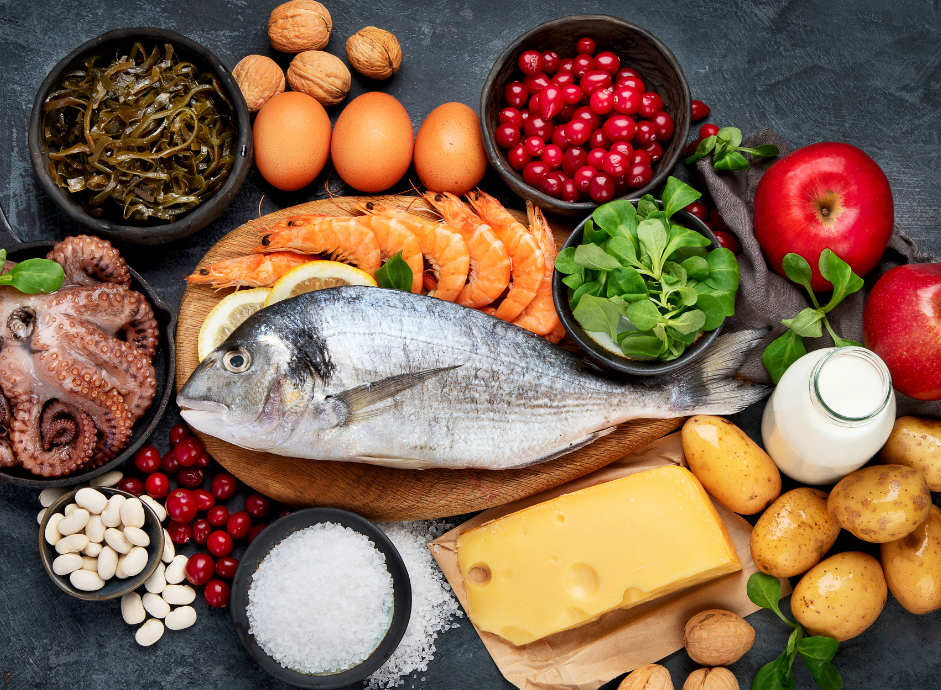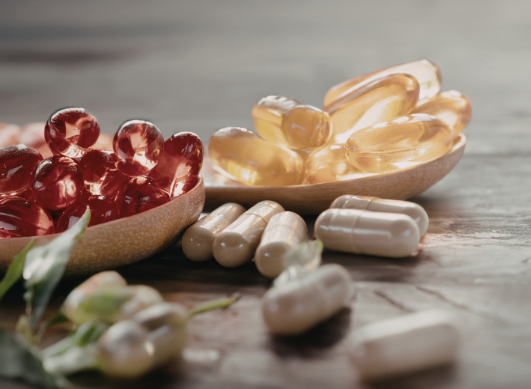- Home
- Forums
- Hypercholesterolemia Forum
- Living with cardiovascular diseases
- 3 tips for a lower-salt diet
Patients Hypercholesterolemia
3 tips for a lower-salt diet
- 21 views
- 1 support
- 2 comments
All comments

robjmckinney
AmbassadorGood advisor
![]()
robjmckinney
Ambassador
Last activity on 15/02/2026 at 16:47
Joined in 2015
643 comments posted | 14 in the Hypercholesterolemia Forum
64 of their responses were helpful to members
Rewards
-
Good Advisor
-
Contributor
-
Messenger
-
Committed
-
Explorer
-
Evaluator
The issue of salt is certainly a questionable as it only affects blood pressure a few degrees and not the big bad boy. The medical profession is mixed on the issue of salt and several reports/studies dismissed the focus on salt. The unpleasant alternatives to additives in our food is certainly not improving tastes and are being forced on us behind our backs. High blood pressure levels have been ignored by our GPs for years leading to heart disease developing in their patients. It is only by pushing your GP that they will take notice as they simply ignore most high blood pressure.
My wife suffers from both high and low blood pressure at times due to drugs. At her last episode a she took massive levels of salt in a spoon trying to raise her pressure. Stopping certain pills did the trick and finally raised her pressure, water tablets the problem. For most of her life with heart disease high blood pressure combined with a high heart rate has been her nemesis. Close monitoring her heart/blood pressure has been the real answer plus self control of her prescribed medicines. GPs lack the knowledge of in depth diseases and found them quite incompetent at detailed advice, the more specialist doctors have the necessary skills/knowledge. The amount of GPs turning up who have no idea of certain diseases or medicine these days at our home is frightening.
See the signature
robjmckinney
![]()
cassydee
Good advisor
![]()
cassydee
Last activity on 22/06/2021 at 15:46
Joined in 2017
17 comments posted | 6 in the Hypercholesterolemia Forum
1 of their responses was helpful to members
Rewards
-
Good Advisor
-
Contributor
-
Messenger
-
Explorer
totally agree with you, @robjmckinney , gps don't really do anything these days, but neither do they refer you to a specialist right away, <which is a great mistake. I always have to insist with my gp.
thank you for the article @Margarita_k although it is not easy to follow all these tips in everyday life. My husband can't eat a meal if it is not salty enough and even if I deliberately put too little salt when I cook, he then adds quite a lot directly into his plate. And he's to stubborn to change his habits
Give your opinion
Members are also commenting on...
Articles to discover...

15/05/2018 | Advice
After a heart attack, it is necessary to resume doing sport or to start doing it
Subscribe
You wish to be notified of new comments
Your subscription has been taken into account








Margarita_k
Good advisor
Margarita_k
Last activity on 07/10/2020 at 11:39
Joined in 2016
1,195 comments posted | 18 in the Hypercholesterolemia Forum
2 of their responses were helpful to members
Rewards
Good Advisor
Contributor
Messenger
Committed
Explorer
Evaluator
Adults should eat a maximum of 6 grams of salt a day. Most of us eat more than this, meaning the average daily salt intake in the UK is 8.6 grams.
You don't have to add salt to your food to eat too much of it – around 75% of the salt we eat is already in everyday foods such as bread, breakfast cereal and ready meals.
Remember, whether you're eating at home, cooking or eating out, don't add salt to your food automatically – taste it first. Many people add salt out of habit, but it's often unnecessary and your food will taste good without it.
Here is what you can do to limit your salt intake and help your heart:
1. Shop for lower-salt foods
- Compare nutrition labels on food packaging when buying everyday items. You can really cut your salt intake by checking the label and choosing the pizza, ketchup or breakfast cereal that's lower in salt. Try choosing one food a week to check and swap when you're food shopping.
- Go for reduced-salt unsmoked back bacon. Cured meats and fish can be high in salt, so try to eat these less often.
- Buy tinned vegetables without added salt. Do the same with tinned pulses.
- Watch out for the salt content in ready-made pasta sauces. Tomato-based sauces are often lower in salt than cheesy sauces or those containing olives, bacon or ham.
- For healthier snacks, choose fruit or vegetables such as carrot or celery sticks. If you are going to have crisps or crackers, check the label and choose the ones lower in salt. Don't forget to check the fat and sugars content, too.
- Go easy on soy sauce, mustard, pickles, mayonnaise and other table sauces, as these can all be high in salt.
2. Cook with less salt
- Use black pepper as seasoning instead of salt. Try it on pasta, scrambled egg, pizza, fish and soup.
- Add fresh herbs and spices to pasta dishes, vegetables and meat. Try garlic, ginger, chilli and lime in stir fries.
- Make your own stock and gravy instead of using cubes or granules, or look out for reduced-salt products.
- Try baking or roasting vegetables such as red peppers, tomatoes, courgettes, fennel, parsnips and squash to bring out their flavour.
- Make sauces using ripe tomatoes and garlic.
3. Eating out: salt tips
Pizza: choose vegetable or chicken toppings instead of pepperoni, bacon or extra cheese.
Pasta dishes: choose one with a tomato sauce with vegetables or chicken, rather than bacon, cheese or sausage.
Burgers: avoid toppings that can be high in salt, such as bacon, cheese and barbecue sauce, and opt for salad instead.
Chinese or Indian meal: go for plain rice. It's lower in salt than pilau or egg fried rice.
Sandwiches: instead of ham or cheddar cheese, go for fillings such as chicken, egg, mozzarella, or vegetables like avocado or roasted peppers. And try having salad and reduced-fat mayonnaise instead of pickle or mustard, which are usually higher in salt.
Breakfast: instead of a full English breakfast, go for a poached egg on toast with mushrooms and grilled tomatoes. If you do have meat, have either bacon or a sausage, but not both.
Salad: ask for dressings or sauces on the side, so you only have as much as you need. Some dressings and sauces can be high in salt and fat.
NB: If you routinely take a dissolvable (effervescent) vitamin supplement or effervescent painkillers, it's worth remembering that these can contain up to 1g of salt per tablet. You may want to consider changing to a non-effervescent tablet, particularly if you have been advised to watch or reduce your salt intake